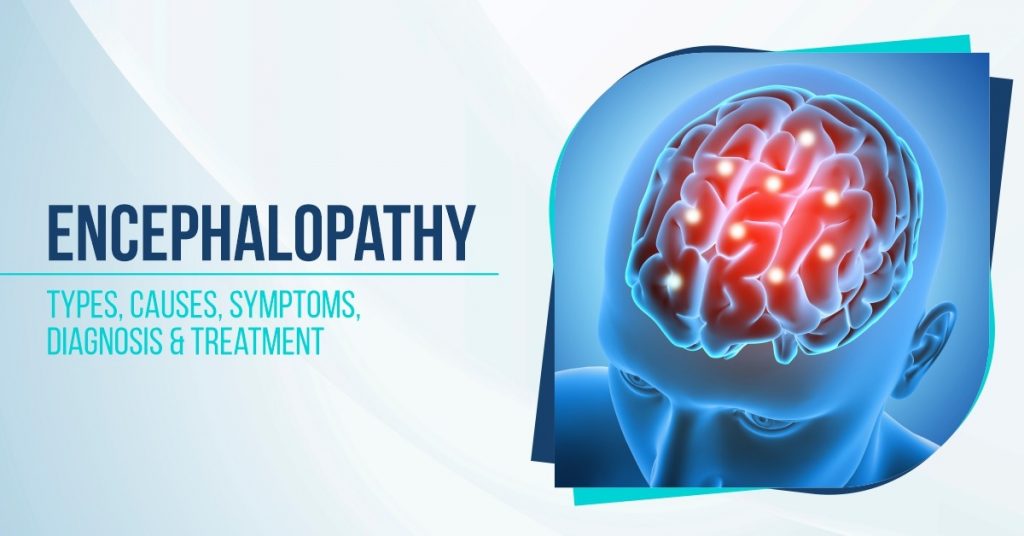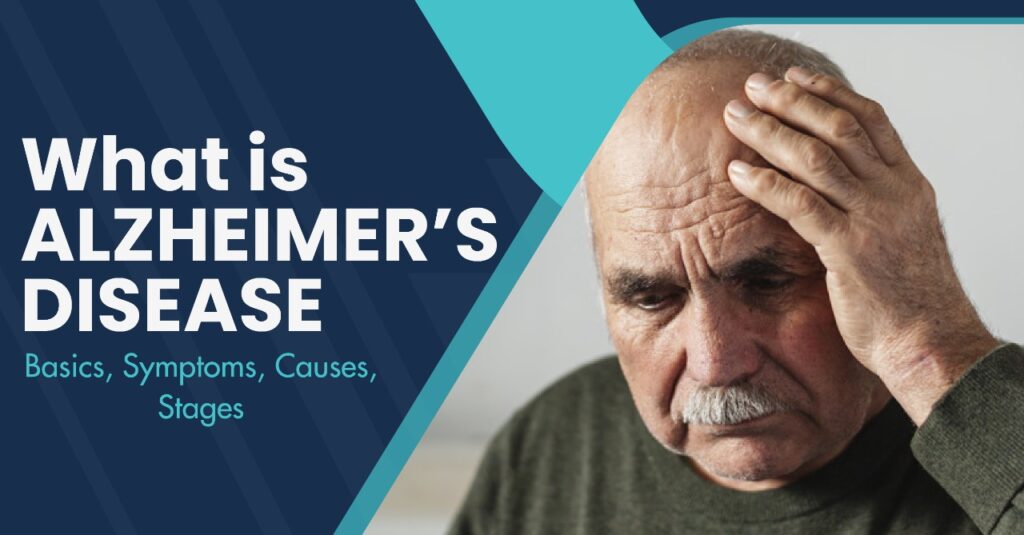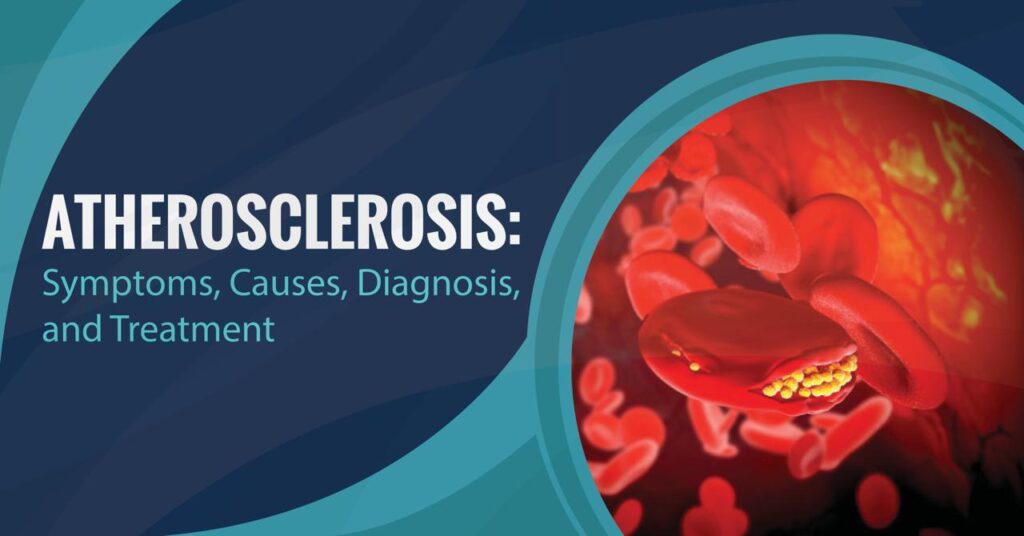What Is Encephalopathy?
A person suffering from an encephalopathy has damage to their brain or a disease that affects their brain. These changes cause an altered mental state, leaving them confused and not acting like they usually do.
This group of disorders is not one disease, but a combination of many different disorders. It’s a serious health condition that can result in either temporary or permanent brain damage without treatment.
Encephalopathy can be confused with encephalitis. They sound similar, but they are two different conditions. In encephalitis, the brain becomes swollen or irritated. On the other hand, encephalopathy is a mental condition that can happen due to a variety of health problems. The most common cause of encephalopathy is encephalitis.
Types of Encephalopathy:
There are two types of encephalopathy: acute and chronic. Acute encephalopathies include hepatic, uremic, hypertensive, Hashimoto’s, and Wernicke’s, while chronic encephalopathies include chronic traumatic encephalopathy (CTE), hypoxic-ischemic, and spongiform.
Chronic Traumatic Encephalopathy:
As a result of repeated head injuries over a long period, chronic traumatic encephalopathy (CTE) develops which is a progressive (gradually worsening) condition of the brain.
Even though CTE is not widely prevalent, this type of encephalopathy is mostly associated with athletes (such as American football players), military personnel who are subject to repetitive blunt head trauma, and victims of domestic violence.
Head trauma does not immediately cause CTE symptoms – it requires repeated head traumas over years. Long-term effects can include depression, memory problems, impulsive behavior, and difficulties with decision-making and completing tasks.
Hashimoto’s Encephalopathy:
As a result of underactive thyroid function, Hashimoto’s encephalopathy (HE) is a more severe form of Hashimoto’s thyroiditis. Estimates estimate that 2.1% of a population of 100,000 is affected by Hashimoto’s encephalopathy.
A few of the symptoms of Hashimoto’s encephalopathy are seizures, confusion, and dementia. Aside from causing psychosis, it is also known to cause visual hallucinations and paranoia.
Hypoxic-Ischemic Encephalopathy:
The condition called hypoxic-ischemic encephalopathy, or HIE, happens when the brain does not receive enough oxygen for a long time.
An injury of this type can cause permanent brain damage. As opposed to a stroke, multiple areas of the brain are affected by low oxygen simultaneously, not just one.
An HIE can take place before birth, during childbirth, or shortly thereafter in newborns. Umbilical knots can occur as a result of pregnancy-related issues, trauma during delivery, and umbilical cord knots.
There is a wide range of outcomes following HIE. HIE can have a variety of effects on babies, some are not noticeable, while others suffer permanent brain damage.
Hypertensive Encephalopathy:
Hypertension causes hypertensive encephalopathy, a generalized brain problem caused by high blood pressure. Headaches, vomiting, imbalance problems, and confusion are symptoms of hypertensive encephalopathy. These symptoms can lead to seizures or bleeding behind the eyes.
When blood pressure medications are abruptly stopped, hypertensive encephalopathy can occur.
Infectious Encephalopathies:
There are several different types of infectious encephalopathies. These diseases are caused by transmissible spongiform encephalopathies, which are also called prion diseases. Among them are chronic wasting disease, fatal familial insomnia, and Creutzfeldt-Jakob disease.
A spongy-like appearance to the brain is the result of holes in these encephalopathies. As a result, infectious encephalopathies are neurogenerative in nature—they continue to cause brain damage over time.
Metabolic Encephalopathy:
Metabolic encephalopathy occurs when a health condition—like diabetes, kidney failure, heart failure, or liver disease—affects proteins, electrolytes, or nutrients in a way that makes it hard for the brain to function. For instance, high blood sugar can lead to confusion or a coma.
Patients who don’t receive optimal treatment for their underlying cause are likely to suffer from neurological symptoms. Sometimes, metabolic encephalopathies can cause reversible brain damage.
Wernicke Encephalopathy:
Wernicke encephalopathy (WE), which is often caused by alcohol abuse, is associated with low levels of vitamin B, especially thiamine (vitamin B1). Confusion, loss of mental acuity, changes in vision, and problems with coordination are some of the symptoms of WE.
Uremic Encephalopathy:
The condition is caused by kidney failure, which can result in uremic toxins accumulating in the brain.
Lethargy, confusion, seizures, or coma are common symptoms. Dialysis or kidney transplantation are the treatments for uremic encephalopathy.
Glycine Encephalopathy:
An abnormally high level of glycine (an amino acid) in the brain causes glycine encephalopathy, a genetic condition.
An infant with this form of encephalopathy is typically weak, sleepy, has trouble eating, has low muscle tone, has abnormal jerking movements, and has trouble breathing.
Hepatic Encephalopathy:
When cirrhosis, chronic liver damage, results in scarring and liver failure, hepatic encephalopathy can occur.
Hepatic encephalopathy occurs when the liver is unable to adequately eliminate toxins from the blood, and these toxins ultimately cause brain damage.
There are two types of encephalopathy: acute (short-term) and chronic (long-term). Hepatic encephalopathy may cause a person to become unresponsive and go into a coma in some cases.
Causes of Encephalopathy:
Encephalopathy can be caused by several different factors.
The following are some examples of causes of encephalopathy:
- The influence of infectious agents (bacteria, viruses, parasites, or prions), Excessive oxygen deprivation to the brain, such as following a traumatic event),
- Alcoholic (toxic effects of alcohol),
- hepatic (such as liver cancer or failure of the liver),
- A uremic condition (kidney failure),
- Diseases of the metabolism (hypercalcemia, hyponatremia, or hyperglycemia)
brain tumors, - The presence of toxic chemicals (mercury, lead, or ammonia),
- Changes in pressure in the brain (often due to bleeding or tumors), and
- Nutritional deficiencies (insufficient vitamin B1 intake, alcohol withdrawal).
There are many possible causes of encephalopathy, and these examples are not all comprehensive. However, they illustrate the wide range of possible causes.
There are a variety of causes of encephalopathy, but most of them fall under three major categories (examples are in parentheses):
- The following infections (HIV, Neisseria meningitides, herpes, hepatitis B and C),
- Alcohol causes liver damage (toxins and alcohol),
- The loss of brain cells as a result of anoxia or trauma.
- Uremia (kidney failure).
The use of drugs such as tacrolimus and cyclosporine may cause encephalopathy; for example, posterior reversible encephalopathy syndrome (PRES). The symptoms of this syndrome are headache, confusion, and seizures.
What are the symptoms of encephalopathy?
Encephalopathy has different symptoms depending on the individual.
A change in mental state is one of the most common symptoms of encephalopathy, with symptoms such as:
- Memory loss
- Having trouble concentrating or thinking clearly
- drowsiness
- An alteration of personality including irritability, aggression, impulsiveness, or thoughts of suicide
Some people might also have:
- Twitching of the muscles involuntarily
- Speaking with difficulty
- Having trouble swallowing
- Weird eye movements
- tremor
- Weakness of muscles
- seizures
- dementia
- Consciousness is lost
Encephalopathy can take several forms. It can come on very quickly and disappear very quickly for some people suffering from acute encephalopathy. Others suffer from chronic encephalopathy, which tends to take a long time to develop.
People with underlying chronic illnesses, such as liver disease, may become well at times before experiencing episodes of encephalopathy caused by an infection, bleeding in the digestive tract, alcohol, prescription medications, or electrolyte imbalance.
While some encephalopathies permanently damage the brain, others do not. Some can be fatal too.
You can also Read: EAR INFECTIONS: CAUSES, SYMPTOMS, RISK FACTORS AND TREATMENT
How is encephalopathy diagnosed?
The first thing your doctor will do is perform a thorough physical examination and review your medical history.
As a result, your doctor might recommend:
- Brain imaging. You can use an MRI or CT scan to determine if your symptoms are due to swelling of the brain or to another condition such as a tumor.
- Spinal tap (lumbar puncture). You can obtain a small amount of cerebrospinal fluid (CSF) by inserting a needle into your lower back. CSF serves as a protective cushion for the brain and spinal column.
Changing amounts of this fluid may indicate a condition involving infection or inflammation. Tests can sometimes be performed on CSF samples to identify viruses or other infectious agents.
- Other lab tests. Viruses or other infectious agents can be detected in blood, urine, or excretions from the back of the throat.
- Electroencephalogram (EEG). The brain’s electrical activity is recorded through electrodes attached to the scalp. A certain pattern of abnormalities may indicate encephalitis.
- Brain biopsy. In rare cases, a small amount of brain tissue will be removed for testing. The only time a brain biopsy is recommended is when symptoms worsen and treatments are ineffective.
Treatment of Encephalopathy:
Depending on the cause of the symptoms, encephalopathy is treated differently. Encephalopathies are treated differently for different reasons.
Various encephalopathy treatments are available depending on the cause:
- Short-term anoxia (usually less than two minutes): oxygen therapy
- Long-term anoxia: rehabilitation
- Alcohol toxicity in the short term: fluids or no treatment
- The treatment for chronic alcoholism (cirrhosis and chronic liver disease) is oral lactulose, a low-protein diet, and antibiotics.
- Uremia (due to kidney failure): Dialysis, kidney transplant, and correction of underlying physiologic causes
- If you have diabetic encephalopathy, you should administer glucose to correct hypoglycemia and insulin to correct hyperglycemia
- In hypertensive or hypotensive encephalopathy, medications are used to raise (for hypotensive) or lower (for hypertensive) blood pressure
Any encephalopathy can be effectively treated by determining the basic cause and designing a treatment plan to reduce or eliminate that cause. Among all of the types of encephalopathy, there is one that cannot be treated; it is static encephalopathy (permanent mental impairment or brain damage).
With static encephalopathy, the best course of action is, if possible, to prevent further damage and then implement rehabilitation to optimize functional ability.









